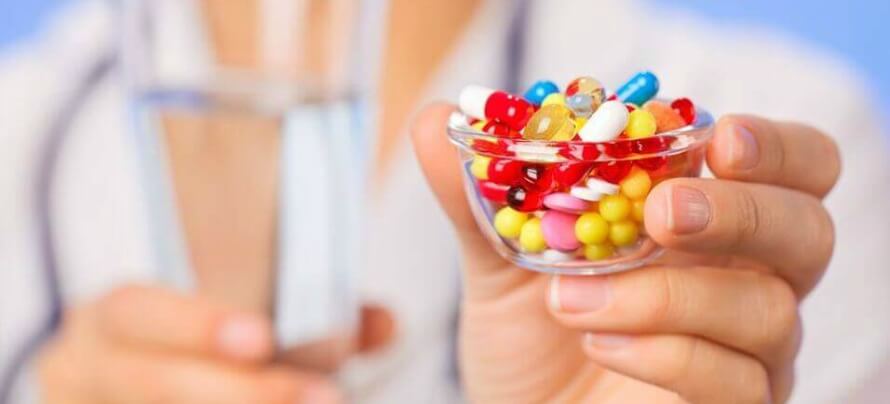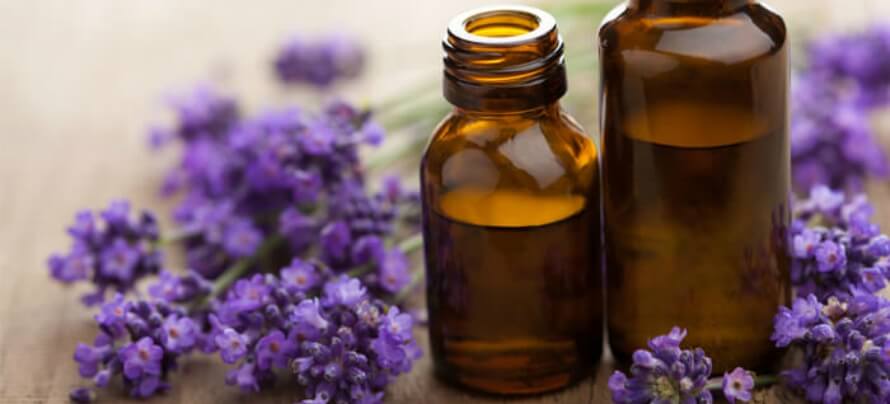Key Takeaways
- The placebo effect refers to benefits of a drug that are not even due to the drug but, rather, our expectation of what the drug is supposed to do.
- The fact that the placebo effect exists greatly transformed how scientific research is conducted and, by learning more about it, we can learn how even snake oil “works” and why it’s still not optimal to take it.
- While many dietary supplements can “work” through placebo effects, it’s frequently used as a manipulative crutch to sell useless substances.
“You take the blue pill, the story ends. You wake up in your bed and believe whatever you want to believe.”
“You take the red pill, you stay in Wonderland, and I show you how deep the rabbit hole goes.”
“Regardless of your choice you may experience slight nausea and irritability unrelated to the treatment.”
A major part of buying and using dietary supplements are user reports and reviews. If you want to know the truth behind something it’s sometimes best to talk to those who’ve personally used it and seen the benefits firsthand.
User reviews, paired with scientific analysis, make for good purchasing decisions.
There’s just one issue though.
Sometimes the science and the reviews are fully at odds with one another. Science shows something works yet users report no benefit or; science shows something doesn’t work and it’s met with resounding user reviews.
What’s going on there? Homeopathy does not work, so why are people saying that it does? That includes people I trust, not just resellers of homeopathy. Could science be wrong on the topic of homeopathy?
Ha ha, no.
But seriously, it’s the placebo effect. The insidious placebo effect that has gradually gone from “the heck is happening” to “the evil thing we need to design our studies around” eventually reaching, or my favorite descriptor, “the study of the psychosocial context that surrounds the patient.”
Or to put it another way, if pharmacy is the study of how the drug affects you then the placebo effect is the study of how you affect you.
And who knows, maybe if you know more about it you could you leverage it to your whims?
- What Is the Placebo Effect?
- What Can the Placebo Effect Do?
- How Did the Placebo Effect Influence Science?
- Is Homeopathy Placebo?
- Is Aromatherapy Placebo?
- The Bottom Line on the Placebo Effect
Table of Contents
+What Is the Placebo Effect?
The definition of the placebo effect is “a beneficial effect, produced by a placebo drug or treatment, that cannot be attributed to the properties of the placebo or drug itself, and must therefore be due to the patient’s belief in that treatment.”
It’s also sometimes called “the power of the mind” in alternative medicine circles since, well, the notion that you can will an effect into existence and the drug doesn’t matter is pretty interesting.
It’s like using nothing but willpower to get drug-like effects. I can’t speak for anybody else but that is a obscenely interesting, and placebos are free.
In contrast to placebo effects we have drug effects. Drug effects are pretty straightforward and pretty much what we almost exclusively talk about when it comes to supplements and pharmacy.
For example, the benefits of creatine happen because the molecule is creatine. You can’t extend creatine’s benefits to leucine because, well, creatine is not leucine.
You might get the same placebo effect from both of them, depending on your expectations, but the drug effect will be different.
If the placebo effect is sometimes called “the power of the mind” then the drug effect could be called “the power of the molecule.”
The important thing to make note of, and perhaps the most interesting one to me, is that the placebo effect and the drug effect are not exclusive to each other. You can have both going for you, two beneficial effects rather than just one.
But in order to even attempt to do that, let’s try and unravel just what the placebo effect can do.
What Can the Placebo Effect Do?

To start, let’s discuss what we actually know about the placebo effect:
- It seems to have a pretty important role and usefulness when it comes to reducing the perception of pain.
- At least in regards to pain, males respond more strongly to the placebo effect than females.
- It’s implicated in antidepressant effects, a field of research that normally has pretty high rates of placebo response and the design of the trial itself can influence placebo response rates.
- It can outright enhance creativity.
And in regards to stuff that we know can influence the placebo effect:
- The coloration of the capsule taken influences the placebo effect.
- The size of the capsule—bigger is better!
- The mere fact you’re taking a pill rather than nothing else.
- There seems to be a link to dopamine, opioid, and cholecystokinin signaling (as in, they may be the molecules that cause the placebo effect ultimately).
- The reward systems in the brain are linked to the placebo effect.
But most importantly for the purpose of this article… the placebo effect works even if you are aware that you are taking a placebo. It’s called an open-label placebo trial and, at least for pain, being told you are taking a placebo still works to reduce pain.
You don’t need to be tricked for them to work!
This is because the placebo effect, in recent years, is coming to be understood not as some magical drug effect but rather just the overarching psychosocial context of the patient.
The placebo effect, and studies surrounding it, have become a field of research designed to maximize your expectations. “Don’t get your hopes up” may actually be the opposite of what we desire for maximal benefits!
How Did the Placebo Effect Influence Science?
Placebos have been noted to be relevant ever since Beecher’s 1955 paper ”The Powerful Placebo”; which was a major stepping stone into making people aware of this effect.
Before this paper, placebos were thought to be inert and just given to people who wouldn’t stop complaining about not getting medicine (snake oil salesmen duping housewives or WW1 soldiers in the trenches, for example).
But afterwards? There was some unknown and unforeseen “effect” happening that, with reasonable suspicion, threw all previous scientific data into disrepute.
So, yeah, can’t change the past but we can learn from it.
Later on the new “Gold standard” of science was created. By using two groups, one given placebo, and blinding both the patients and those giving the drugs out, it can greatly limit the influence of the placebo effect.
To this day, the double blind placebo controlled trial remains the gold standard of clinical trials. This is because it can control for the placebo effect.
Is Homeopathy Placebo?
Homeopathy is a rather enraging topic for me since there are rules to pharmacology. Yes, there is variance from one person to another, but there are some very hard-set rules that will always apply to every drug ever in existence.
And the major one is “the dose makes the poison.” The dose also makes the beneficial effects, the dose or how much of a thing you take is the major determinant of whether or not the molecule in question works.
It’s why Legion focuses on clinically effective doses. We kinda NEED to be scientifically sound.
And homeopathy looks at this one rule and goes “lol, let’s reverse it.” It goes against all basic tenets of pharmacy for no logical reason.
Yet it works?
Well, yes, solely due to the placebo effect.
You can find scientific studies showing a beneficial effect of homeopathy when there is no placebo group to compare them against and when the patients compare how they feel after the “drug” against before taking the “drug”.
Homeopathic remedies can also be associated with side effects; you know, the nocebo effect, but only when compared to themselves and not against a placebo control.
Studies comparing homeopathy against conventional medicine though? There are no differences between homeopathic remedies and placebo. Which makes sense, something can’t be different from something else if they’re the same thing.
The entire field of homeopathy in practice is essentially just counseling. Trying to manage the expectations of the client so the placebo effect can be maximized. This is looking at it optimistically as well, as most practitioners believe there are non-placebo effects.
Ultimately, however, the entire field of homeopathy does not have any “drug effect” associated with it. It’s a series of techniques relying solely on the placebo effect.
Which is stupid.
If you could choose something with a placebo effect why not choose something that also has a drug effect? Two is greater than one after all.
And some things in the realm of “natural alternative medicines” do have this one-two punch.
Is Aromatherapy Placebo?

This one is interesting because aromatherapy is not like homeopathy, aromatherapy is more than just the placebo effect and could very well be a legitimate way to use a supplement.
Could very well be—wording is important here.
The mere fact that we can perceive scent is due to molecules. They leave their “container,” travel through the air, and activate receptors in our noses. This causes perceptions to occur in the brain.
These are called “volatile oils” and their ratios play a major role in how you perceive a scent. Things like β-linalool, caryophyllene, and myrcene (all in lavender oil) are biologically active gases.
But by the nature of the double-blind placebo-controlled study, you have two groups and they are given pills or powders, and they can’t tell if it’s the drug or the placebo. These provisions look the same, taste the same, smell the same, etc.
Even the slight difference in how the subject senses the pill or powder can influence the placebo effect.
So, what can you do when the thing you want to study is one of the senses themself?
You. Cannot. Blind. Scents. If you give one group almond oil (a popular “control” scent) and another group lavender most people will be able to tell what the lavender scent is.
Furthermore, scent does travel. Even if the placebo and active groups come in on different days the researchers will be able to tell which group is which. Remember they need to be blinded too, lest their body language give away which group the patient is in.
So what does this all mean?
While aromatherapy has some rationale behind it, and can “work”, it’s very hard to prove this based on current scientific standards.
Finally, associative memory is a thing. The placebo effect caused by rose essential oil will differ between the person who associates rose with a home cooked dinner with grandma versus the person who experienced a tragic “thorning” accident at the rose farm.
This all makes it very difficult to get sufficient evidence on aromatherapy to differentiate it from placebo. Oh well, at least it’s not an outright lie like homeopathy is.
The Bottom Line on the Placebo Effect
The placebo effect was once a nuisance. A pesky little effect that just got in the way of researching drug effects.
Nowadays, it’s understood that what we once called the placebo effect is just the study of how people expect things to happen. Pill color, size, and even marketing can make legitimate changes to your supplementation experience.
Of course, this is no excuse to sell ineffective supplements. Why rely on the placebo effect when you can have both the placebo and drug effects? A one-two punch is better than a half-assed jab any day of the week.
So if you’re interested in testing out the placebo effect and unlocking the hidden potential of your mind, consider buying UNDISCLOSED COMPETITOR PRODUCT today!
And if you want something that actually works, well, stick with us. 🙂










